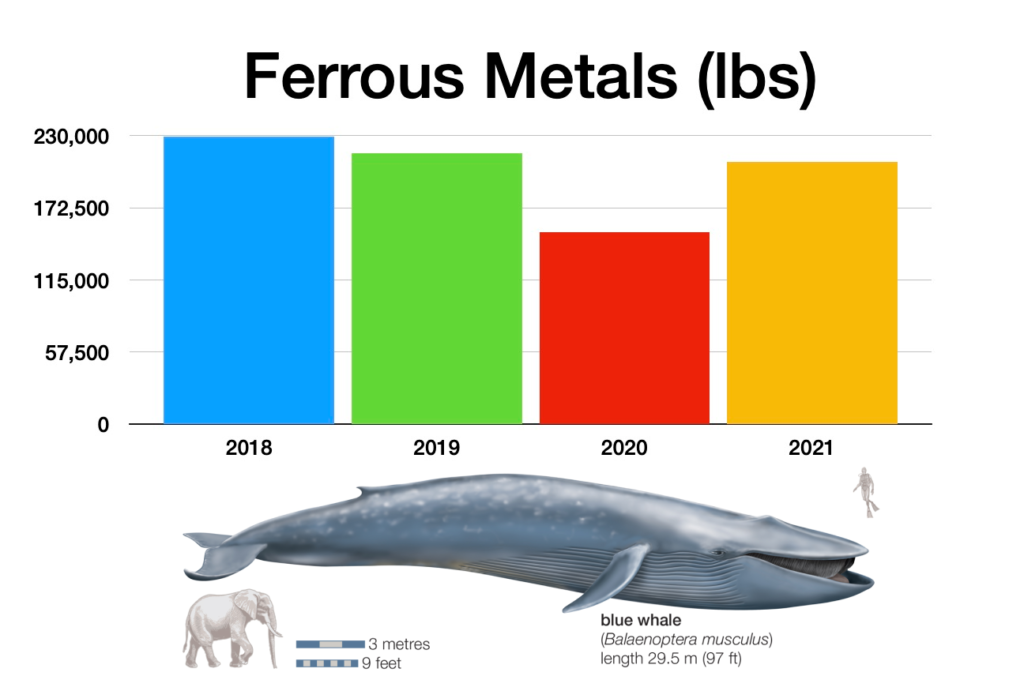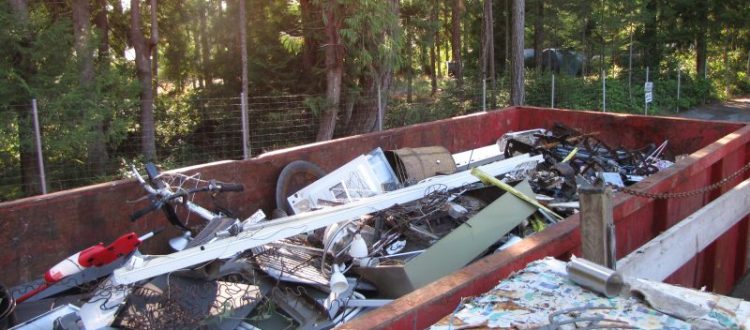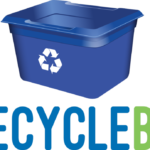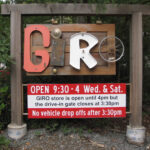GIRO metal drop-off fees to increase September 17th
GIRO offers a range of services to the community for recyclable materials. Everything from paper, cardboard, hard and soft plastics, batteries, paint, lightbulbs, food glass jars, drink beverage containers and many more. One of the most used and valued services that GIRO offers is the two large bins for scrap metal; one is for ferrous metals and the other is for aluminum which is a non-ferrous metal.
To understand which metals are ferrous it is important to know the difference between ferrous and non-ferrous.
The word ferrous comes from the Latin word “ferrum” which means iron. Ferrous metals include steel, cast iron, wrought iron, as well as alloys of iron with other metals e.g., stainless steel. An alloy is a metal made by combining two or more metallic elements, especially to give greater strength or resistance to corrosion. As a result of their iron content, ferrous metals are strong and hard and used in applications that demand those characteristics i.e., buildings, cars, machinery, and appliances. Ferrous metal is the only metal that is magnetic so if you are bringing an assortment of metals to GIRO for drop off and unsure of which are ferrous, you can test them with a magnet first to separate out the ferrous from the non-ferrous (GIRO staff will also do a magnet test if you are unable to do so).
Non-ferrous metals aren’t magnetic because they don’t contain significant amounts of iron. Aluminum, lead, copper, zinc, nickel, titanium, and brass are all non-ferrous metals. Precious metals like gold and silver fall into this category too.
The value of ferrous and non-ferrous metals differs greatly as a commodity. One of the downsides of ferrous metals is that they are susceptible to corrosion unless they have been alloyed with another element (e.g., stainless steel to make them more rust resistant.) By contrast non-ferrous metals are incredibly durable and don’t degrade over time. Due to these characteristics and properties non-ferrous metals hold their value on the commodity market.
Ferrous metals are recycled in far greater quantities and are so readily available that they don’t command as high a price, either in their virgin state or as scrap.
Here at GIRO, we have a 28x12x8ft bin (40 yard) for scrap ferrous metal. The bin accepts the following: BBQs, fridges, freezers, hot water tanks, dishwashers, stoves, houseware appliances like toasters, kettles, pots, and pans. Basically, anything with at least 10% ferrous content can go into the bin. Once the bin is full it is switched out (approx. every ten days with ABC scrap in Nanaimo).
This is a valuable service for islanders as they would otherwise have to take these items to town to an alternate drop-off location.
Not all scrap ferrous metal has the same value
A lot of the drop-offs for the bin are considered “white steel”. White steel are fridges and freezers. These appliances have a significant amount of plastic and low ferrous density and take up a lot of space in the bin. They also require the additional step of having the freon removed before they can be compacted. After removing the freon ABC must then add heavier ferrous scrap e.g., cars and heavy machinery to bring the density levels up to add value to the final shipment. The scrap ferrous market also fluctuates. Pre 2019 China was the main buyer for North American scrap, and we averaged $200 per bin in revenue after the cost of the transfer fee ($439) was deducted. Since China closed its doors in 2019, ABC brokers have struggled to find end markets. Our scrap has been going as far as Turkey, Thailand, and Russia. The pandemic has also affected this supply chain. We saw some recovery in 2021 as domestic mills in the United States increased inventory production due to an uptick in construction in Canada and the States. Unfortunately, since March 2022, due to the war in Ukraine, the rise in inflation, and rumours of a global recession the price for ferrous scrap has plummeted and we are now sitting at a deficit (after the bin transfer cost.)
To cushion these new costs, we will be increasing the drop-off fees by $5 per item.
New drop-off fees for ferrous scrap metal per item:
| ITEM | EXAMPLE | NEW PRICE |
| Oversize metal | oil tank, heavy machinery | $25 |
| Large appliances | fridge, freezer, hot water tank, wood stove | $20 |
| Medium appliance | BBQ, dish washer, small freezer | $15 |
| Small appliance | mini-fridge | $10 |
| Misc. scrap items | microwave, fencing etc. | TBD |
As the graph shows, aside from the pandemic year the drop-off volumes we received for scrap ferrous metal remained consistent. As a visual reference the approximate yearly volume of 200,000 lbs is the equivalent weight of a blue whale.

We appreciate the ongoing community support and understanding as we navigate the global impact of fluctuating commodity prices.
Please speak to our staff before dropping off any metal and feel free to ask any questions about our services.
Thank you,
Michelle Kresnyak
General Manager
GIRO






